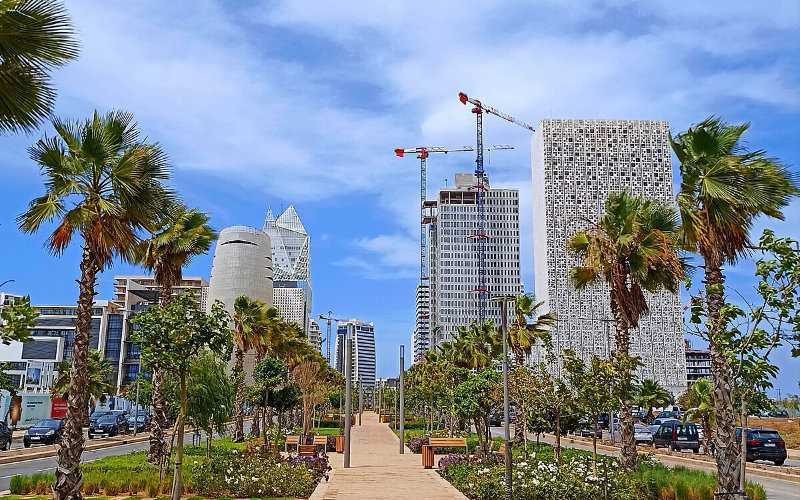Morocco Revamps Cities in Preparation for 2030 World Cup Co-Hosting

Moroccan cities are transforming ahead of the football World Cup that Morocco will co-host in 2030 alongside Spain and Portugal. Architect Rachid Andaloussi assures that the investments and efforts made as part of the preparations "inspire pride and admiration".
Morocco is initiating profound urban transformations. In an interview with Al Ayyam cited by Le360, architect Rachid Andaloussi reveals that Moroccan cities have recently progressed and engaged in positive competition, particularly thanks to advanced regionalization which has facilitated these developments. According to him, slums have almost disappeared. Characterized by "inhumane conditions" of insalubrity and unemployment, slums were sources of social problems. But "bold operations" of rehousing were carried out quickly and have improved the situation, he specified.
Similarly, transport infrastructure (highways, high-speed trains, urban and interurban transport) has seen significant advances. The architect also mentioned that the twelve regions now have at least one university hospital, and in terms of education and training, there are numerous grandes écoles and institutes, "starting with Mohammed VI University in Benguerir, which has reached a level of excellence", as well as theaters and libraries.
Thus, the pace of World Cup preparations is accelerating. The next five years will be "a golden period in Morocco’s history", assures Andaloussi, adding that the investments and efforts made as part of the preparations "inspire pride and admiration". "We haven’t yet reached the desired level, but we’re on the right track, carried by a dynamic where the most difficult thing is for everyone to work in the same direction. We are learning through practice", the architect rejoices.
According to him, the 2030 World Cup "is a catalyst, and even an accelerator. Nevertheless, the question of the World Cup’s cost arises, as several countries, despite having solid infrastructure, have found themselves in debt".
Related Articles
-

Morocco’s World Cup Quest: Regragui to Unveil Squad for Crucial Qualifiers
28 August 2025
-

Atlas Lions Roar into CHAN Final: Morocco Edges Senegal in Thrilling Penalty Shootout
27 August 2025
-

Morocco Stuns Senegal in Penalty Shootout, Advances to CHAN Final Against Madagascar
26 August 2025
-

Morocco vs Senegal: CHAN 2024 Semi-Final Showdown Set to Ignite Kampala
26 August 2025
-

Moroccan Star Ziyech Slashes Salary Demands in Bid for Club Return and AFCON Glory
26 August 2025